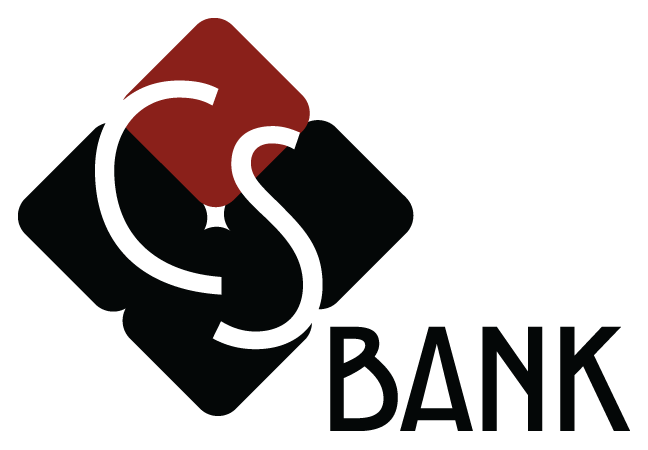not featured
2025-06-09
6/9/2025
Mortgage
published
%20(48).jpg)
When To Consider A Variable Rate Mortgage
When it comes to choosing a mortgage loan, you have a variety of options. Whether you go with a conventional mortgage or a government-insured loan such as an FHA, VA, or USDA mortgage, you can also decide between a fixed or variable interest rate. While fixed-rate home loans have historically been the most popular option because of their predictability, there are also compelling reasons to choose a variable-rate mortgage. Keep reading to learn what a variable-rate mortgage is, how it works, and when it may be the best option for you.
What is a variable-rate mortgage?
Also known as an adjustable-rate mortgage (ARM), this type of home loan has an interest rate that can adjust up or down depending on the benchmark rate.
Variable-rate mortgages usually have an introductory period with a fixed interest rate. This introductory rate may be lower than the rate for a fixed-rate mortgage. Once the introductory period–usually several years–is up, your interest rate will have scheduled adjustment intervals such as once a year or so. At that time, your rate may go up or down and your monthly payment amount will change as well. However, there are caps to how much your interest rate can adjust in a given period, as well as overall for the life of the loan.
You may have also heard about Interest-Only ARMs. This type of variable-rate mortgage begins with a period in which you only pay the interest owed each month. This gives you lower payments; however, once the interest-only period ends, your mortgage payments will increase in order to pay off the loan by the end of the original term.
Adjustable rate mortgage vs. fixed
A fixed-rate mortgage has the same interest rate over the life of the loan. This means you will also have the same mortgage payment for the loan term. A fixed-rate mortgage offers stability, but if average rates fall, you’ll have to refinance in order to get a lower interest rate.
Mortgage Loan Terms
Just like with a fixed-rate mortgage, you can choose a loan term for your ARM. A longer term means lower monthly payments, but you’ll pay more interest over time. A short-term mortgage will have higher monthly payments but you’ll pay less interest and own your home outright in a shorter amount of time.
How Does the Adjustable Rate work?
Each ARM loan has its own terms, so it’s important to understand what you’re signing up for. In general, you can expect:
Caps
These are limits on how much your interest rate and monthly payment can change during each adjustment period. Adjustment periods can be as frequent as every month or less frequent such as every few years.
- First Adjusted Interest Rate Cap: Max amount your interest rate can increase when it’s adjusted for the first time.
- Subsequent Adjusted Interest Rate Cap: Max amount your interest rate can increase at each adjustment after the first one.
- Lifetime Rate Cap: Max amount your interest rate can increase during the life of the loan.
Of course, your interest rate doesn’t necessarily increase at every adjustment period. If the benchmark rate falls, your interest rate can also decrease. This is why ARMs can be an attractive option when rates are high. If they fall, you will benefit without having to go through the hassle and expense of a mortgage refinance.
Your variable rate is calculated using a certain index or benchmark rate, plus a margin, which is a certain number of percentage points added to the index. For example, if the index is 3% and the margin is 2%, your interest rate would be 5%.
Your ARM may also have a cap on the amount your monthly mortgage payment can change with each adjustment period.
When Does An Adjustable-Rate Mortgage Work?
If you’re deciding between a fixed or adjustable-rate mortgage, consider the following:
- If mortgage interest rates are high when you buy your mortgage, a variable-rate mortgage can be an opportunity for you to lower your rate down the line without refinancing.
- If you’re not planning on staying in your home long-term and interest rates are low, you can take advantage of the lower, introductory rate.
- If you plan to pay off your mortgage quickly, you can save money with the introductory rate.
- Do you want lower monthly payments initially and you are comfortable with the risk of higher payments later?
- If you’re a first-time homebuyer, ARMs offer a more affordable introductory period while you are adjusting to the extra costs that come with owning your home.
- Borrowers choosing an adjustable-rate mortgage can always refinance into a fixed-rate mortgage at some point.
Where To Get An Adjustable-Rate Mortgage
Today’s borrowers have many options for getting a mortgage. However, we think you are best served by working with a full-service mortgage division in Northwest Arkansas or Southwest Missouri. CS Home Mortgage offers a complete menu of home loan options, just like the bigger banks. But we guide you through the process every step of the way with personalized service. And no one knows your local real estate market like the people who live and work in your community, too.
Find out of an Adjustable Rate Mortgage is right for you!
Are you wondering, should I consider an adjustable-rate mortgage? Talk with one of our mortgage lenders in Eureka Springs, Berryville, Harrison, Huntsville, and Holiday Island, AR, or Cassville, MO. CS Home Mortgage is a full-service mortgage division with a team of experienced mortgage lenders throughout Northwest Arkansas and Southwest Missouri.


